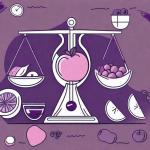Dietary fiber, an indigestible carbohydrate found in plant foods, plays a crucial role in maintaining overall health and preventing chronic diseases like high blood pressure and diabetes. Categorized into soluble fiber and insoluble fiber types, fiber aids in digestion, supports gut health, and reduces the risk of various conditions, including heart disease.
Notably, dietary fiber is an unsung hero in cancer prevention, particularly for colorectal and breast cancer. By enhancing digestive health, regulating blood sugar levels, and promoting a diverse gut microbiome, high fiber intake is strongly linked to a lower cancer risk as confirmed by meta-analysis studies following AMSTAR2 guidelines.
To reap these benefits, health organizations like the World Health Organization recommend a daily fiber intake of 25-30 grams for adults. Incorporating fiber-rich foods like whole grains, legumes, fruits, vegetables, and nuts into your diet can help you meet these guidelines and support long-term wellness and weight management.
Key Takeaways:
Understanding Dietary Fiber
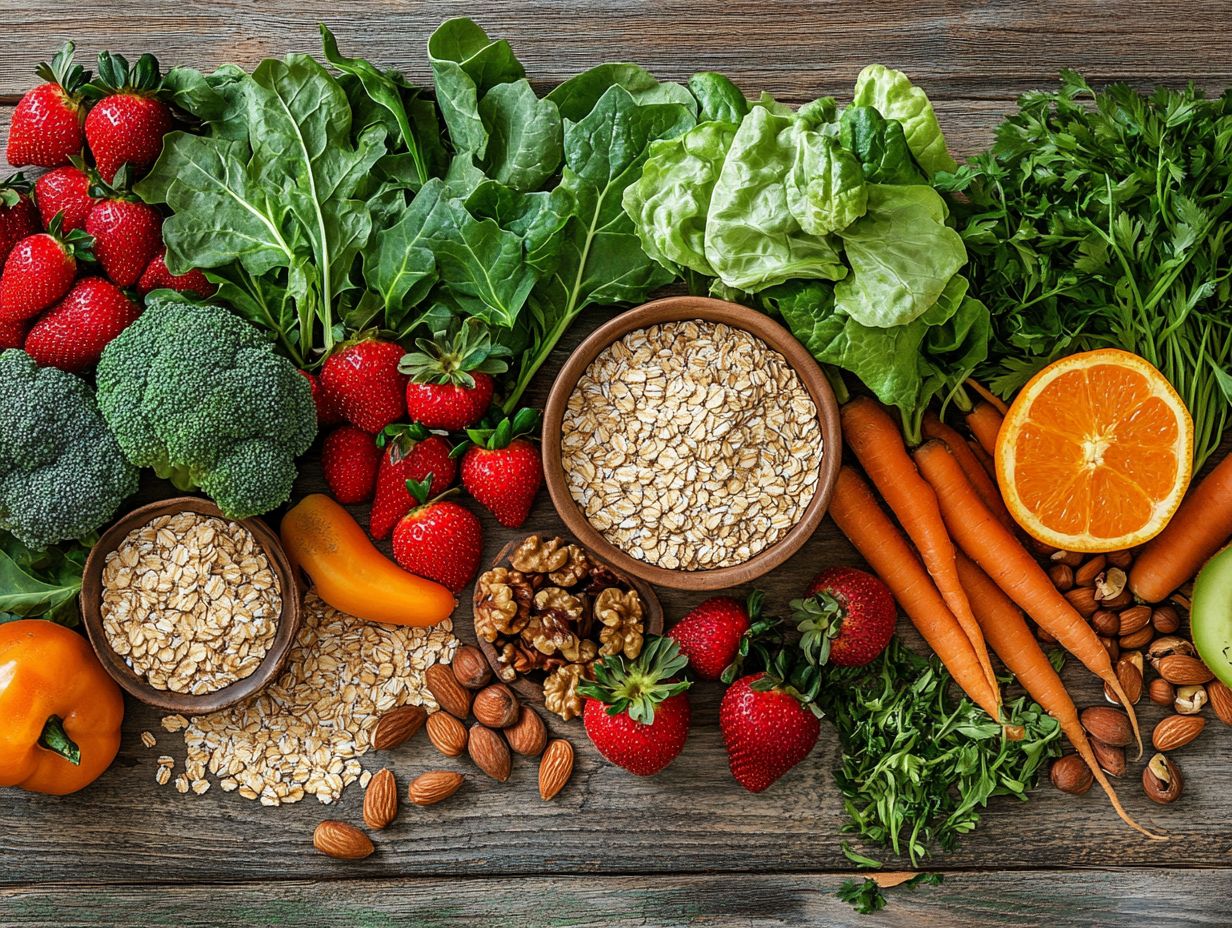
Dietary fiber is an indigestible carbohydrate found in plant foods, categorized into soluble fiber and insoluble fiber.
Soluble fiber dissolves in water, forming a gel that can help lower blood cholesterol and glucose levels.
Insoluble fiber does not dissolve in water and aids in moving material through the digestive system, promoting regularity.
Fiber supports gut health, aids digestion, and reduces the risk of chronic diseases.
Definition and Types of Dietary Fiber
Dietary fiber is the indigestible part of plant foods that aids in digestion and is categorized into two types: soluble fiber and insoluble fiber, which support gut health and the microbiome.
Soluble fiber dissolves in water, forming a gel-like substance that helps lower cholesterol and stabilize blood sugar, which can improve heart health.
Insoluble fiber adds bulk to stool, promoting regular bowel movements and reducing gastrointestinal disorder risks, ultimately enhancing digestive health.
Dietary fiber supports digestive health and reduces the risk of chronic diseases.
Role of Dietary Fiber in Cancer Prevention
Dietary fiber reduces cancer risk, particularly colorectal and breast cancer, by improving digestive health and metabolic processes.
Dietary fiber regulates blood sugar levels and enhances gut microbiome diversity, which contributes to cancer prevention.
High fiber intake is linked to lower cancer risk.
How Fiber Helps Reduce Cancer Risk
Fiber reduces cancer risk by promoting the production of short-chain fatty acids in the gut, which help inhibit the growth of cancer cells.
Fiber undergoes fermentation in the gut, producing short-chain fatty acids that enhance gut health, reduce inflammation, and decrease cancer risk.
Higher fiber intake is associated with lower colorectal cancer risk, as emphasized by recommendations from the European Food Safety Authority.
Recommended Daily Intake of Fiber
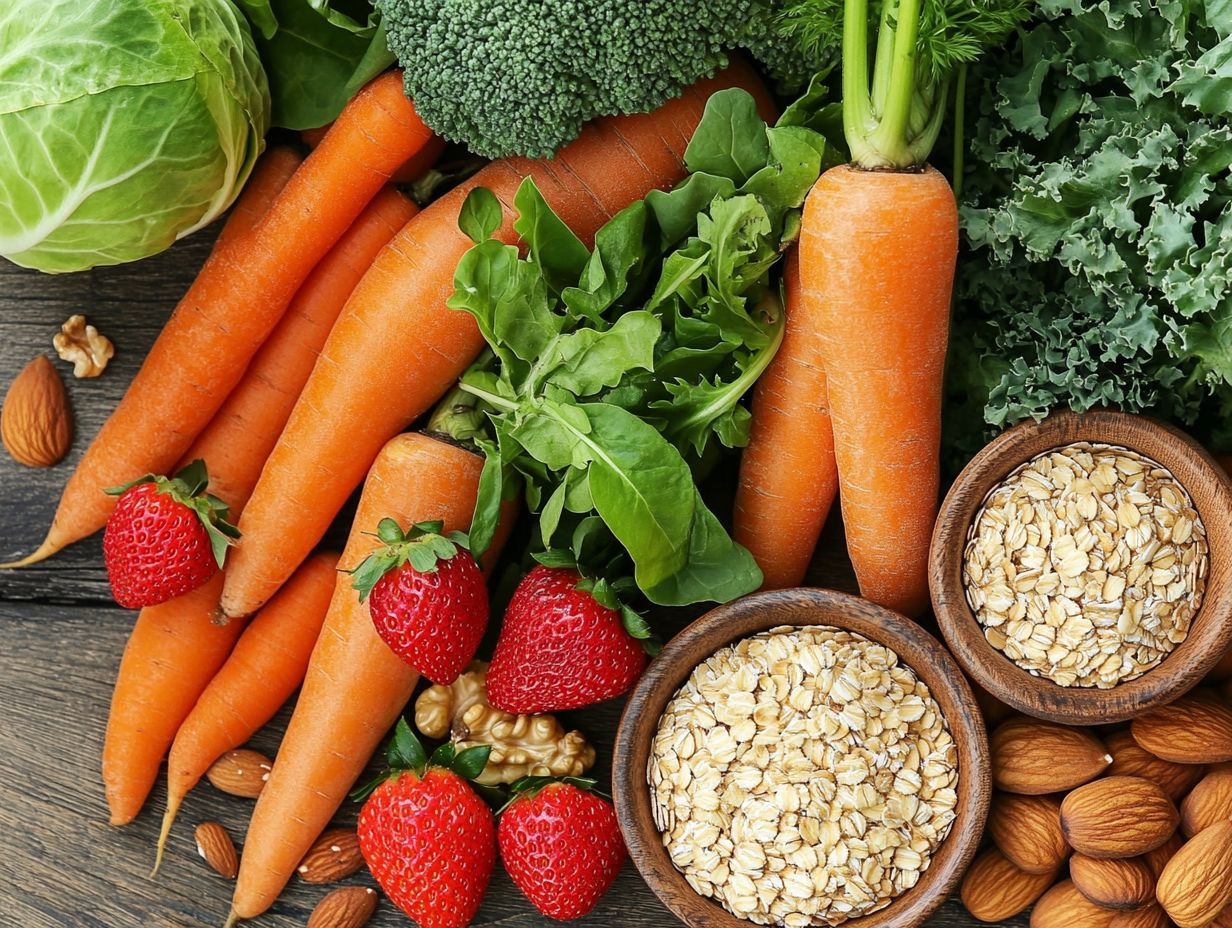
The recommended daily intake of dietary fiber is 25 grams for adult women and 38 grams for adult men, according to health organizations.
For children and adolescents, fiber requirements vary by age: 19 grams for children ages 1-3, 25 grams for ages 4-8, and 26-31 grams for ages 9-18.
Fiber intake supports digestion and reduces the risk of chronic diseases.
Current Guidelines and Recommendations
Current guidelines recommend adults consume 25-30 grams of dietary fiber daily, emphasizing variety in fiber-rich foods.
Soluble fiber lowers cholesterol and stabilizes blood sugar, found in oats and fruits.
Insoluble fiber aids digestion, found in whole grains and vegetables.
Meeting fiber intake recommendations supports heart health, reduces stroke risk, and prevents digestive issues.
Food Sources of Dietary Fiber
Food sources of dietary fiber include:
- whole grains
- legumes
- fruits
- vegetables
- nuts
Dietary fiber from these sources supports digestive health and overall wellness.
Top Foods High in Fiber
Top foods high in dietary fiber include whole grains, legumes, fruits, and vegetables.
Whole grains like oats and brown rice, legumes such as beans and lentils, fruits like apples and berries, and vegetables such as carrots and broccoli are rich in fiber.
Other Health Benefits of Dietary Fiber
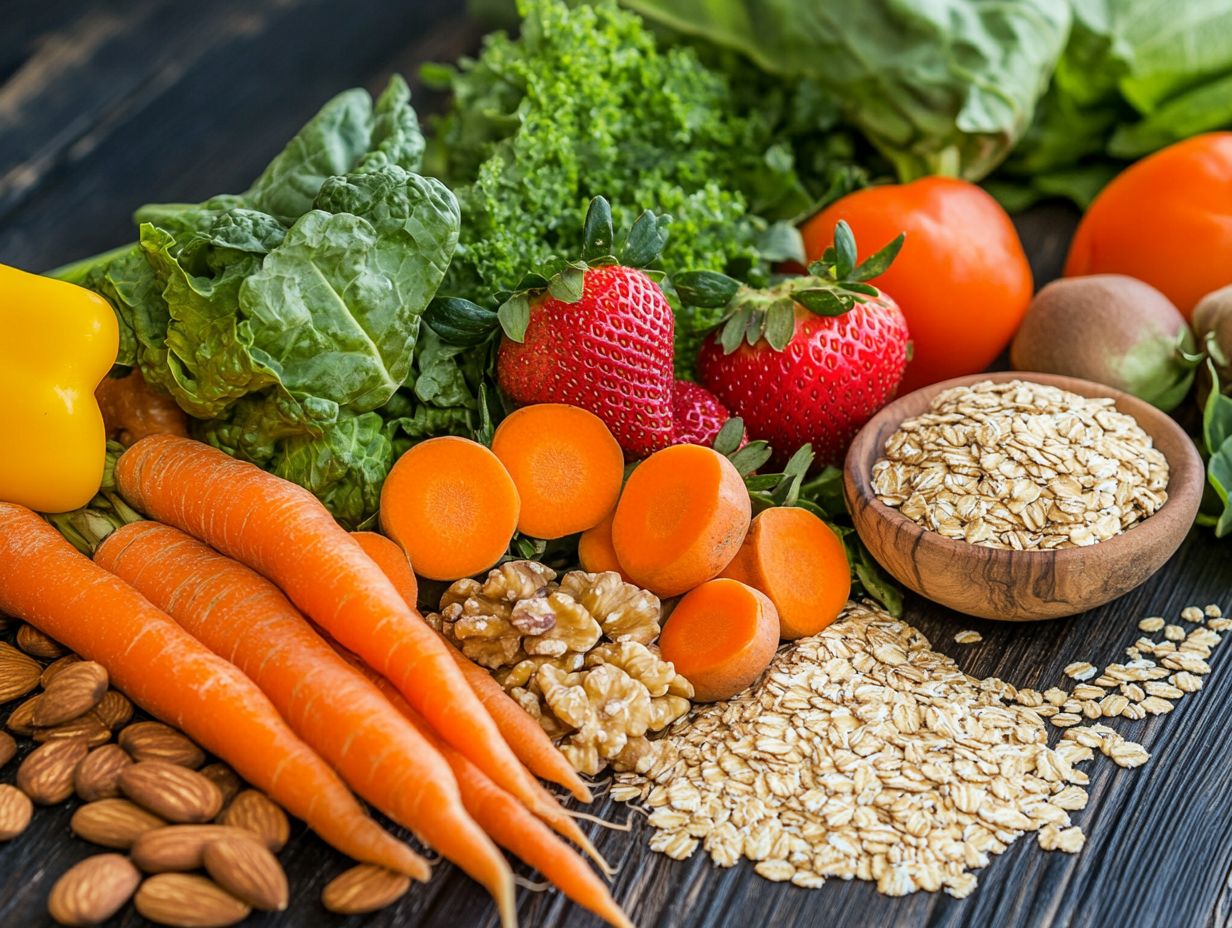
Dietary fiber improves digestive health by promoting regular bowel movements and preventing constipation.
Dietary fiber aids weight management by increasing satiety, helping to control appetite.
Dietary fiber enhances heart health by reducing cholesterol levels and maintaining healthy blood sugar levels.
Improving Digestive Health and More
Dietary fiber improves digestive health by promoting regular bowel movements and supporting a healthy gut microbiome.
Soluble fiber, found in oats and legumes, helps manage diarrhea and stabilize blood sugar levels.
Insoluble fiber, found in whole grains and vegetables, prevents constipation by adding bulk to stool.
Fiber fermentation produces short-chain fatty acids that nourish gut cells.
Adequate hydration is essential for effective fiber transit and nutrient absorption.
Incorporating More Fiber into Your Diet
Incorporating more fiber into your diet can be achieved by eating fruits, vegetables, whole grains, legumes, and nuts.
- Eat high-fiber cereals for breakfast.
- Add vegetables to meals.
- Choose whole-grain options over refined grains.
Snack on fruits and nuts to increase fiber intake throughout the day, ensuring adequate hydration to aid digestion.
Tips and Tricks for Increasing Fiber Intake
To increase dietary fiber intake, follow these tips:
- Start breakfast with high-fiber fruits like berries or bananas, or add chia seeds to yogurt.
- Choose whole grain bread or leafy greens and legumes like chickpeas for lunch.
- Include a variety of vegetables and whole grains like quinoa or brown rice for dinner, employing healthy cooking methods.
- Increase water intake as fiber consumption increases to aid digestion.
- Plan meals with fiber-rich foods to ensure consistent intake.
Frequently Asked Questions
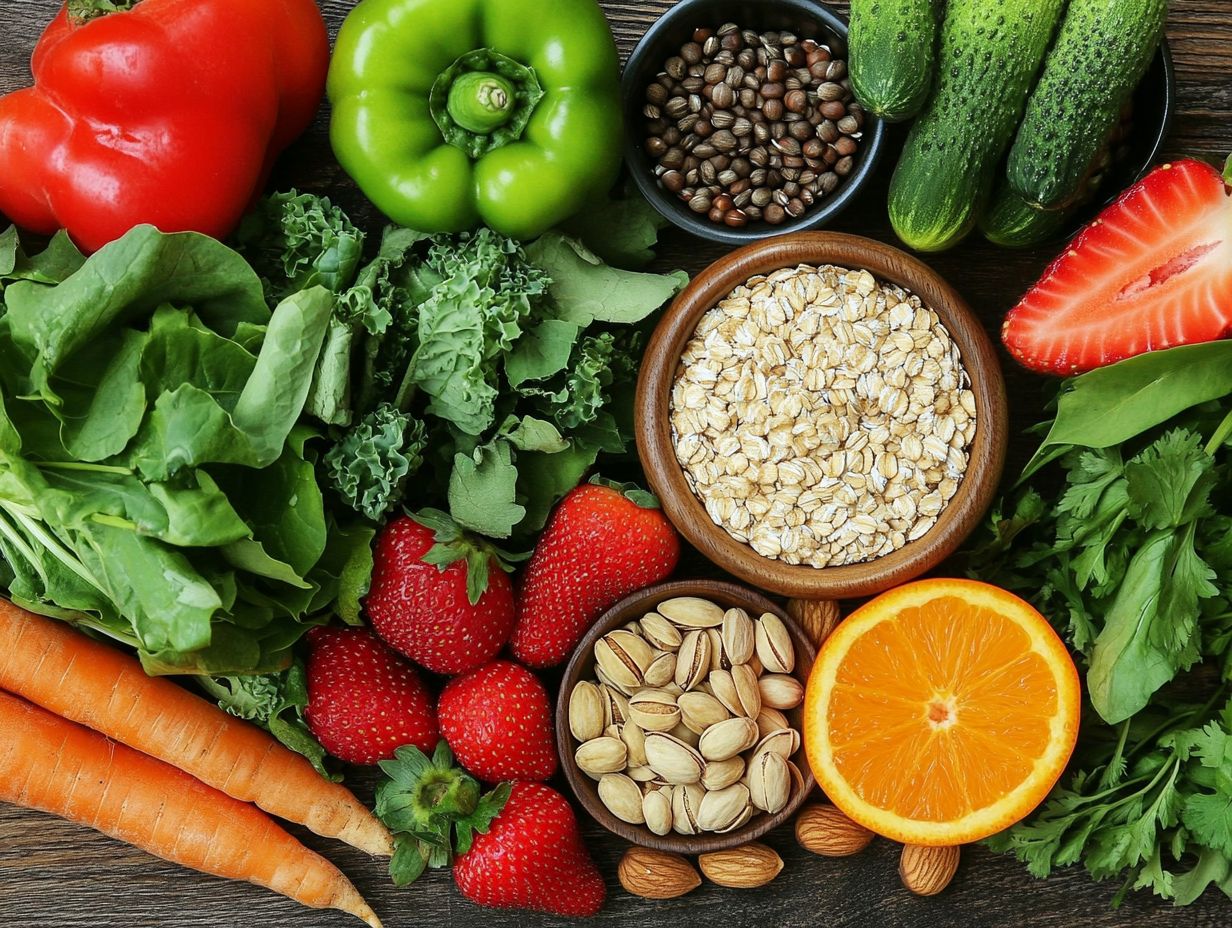
What is dietary fiber and why is it important in cancer prevention?
Dietary fiber is a type of carbohydrate found in plant-based foods. It is important in cancer prevention because it helps promote regularity, prevents constipation, and may reduce the risk of certain types of cancer.
How does dietary fiber prevent cancer?
Dietary fiber acts as a natural cleanser for the digestive system, helping to remove toxins and waste products from the body. It also binds to cancer-causing compounds, preventing them from being absorbed into the body.
Which types of cancer can be prevented by consuming dietary fiber?
Research shows that dietary fiber may help prevent colon, breast, and prostate cancer. It may also have a protective effect against other types of cancer, such as ovarian and stomach cancer.
How much dietary fiber should I consume for cancer prevention?
The recommended daily intake of dietary fiber is 25 grams for women and 38 grams for men. However, most people do not consume enough fiber in their diet. It is important to gradually increase your fiber intake to avoid digestive discomfort.
What are some good sources of dietary fiber?
Foods that are high in dietary fiber include fruits, vegetables, whole grains, beans, nuts, and seeds. Some examples include apples, broccoli, whole wheat bread, kidney beans, and almonds.
Are there any risks associated with consuming too much dietary fiber?
Consuming too much dietary fiber can lead to bloating, gas, and abdominal discomfort. It is important to drink plenty of water and increase fiber intake gradually to avoid these side effects. If you have any health conditions, consult with your doctor before significantly increasing your fiber intake.





